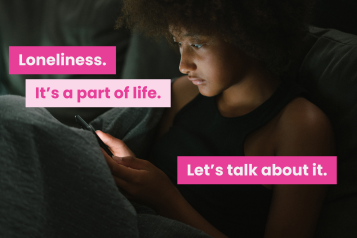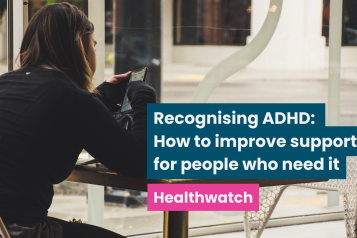Experiences of grief and loss in south west London

Commissioned by NHS South West London, and working in partnership with Kingston Voluntary Action, we engaged with communities in Kingston about their experiences accessing services and support for bereavement, loss and grief.
“I felt numb, not sure what to do, but I needed someone to acknowledge my pain and try to understand me.”
We wanted to better understand how culture, language, faith, belief and life philosophies shaped experiences of grief and the support received. Encouraging input from organisations across south west London, we received insights from 13 gaps initiative workshops.
"If they don’t understand our traditions, it’s hard to trust them with something as personal as grief."
Participants came from diverse backgrounds, were of all ages, and had different experiences of grief. Loss was characterised in different ways, including bereavement, the loss of a loved one to either addiction or long-term recovery, the loss of a caring role and the sense of identity it brings, pregnancy loss, and cultural displacement.
"Initially, I needed human guidance, support, contact, and advice on next steps after my loss, plus information on any charities and resources in my local area."
We heard how people characterised good support as local, easy to access, human, compassionate and timely. For many, knowing what support was out there and available to them was a challenge to accessing what they needed, when they needed it. Concerns were raised over waiting lists and the imposition of time-limits on grief support.
“People who actually respond and don’t just leave you on a waiting list. It is important that when you seek help, someone is there to listen. If the response time is too long, you may shy away from getting the help and support you need.”
The need for practical guidance was highlighted, with participants reflecting on the toll on finances and the burden of ‘death admin’ – arranging a funeral, registering the death, dealing with the estate – while navigating grief.
Physical symptoms such as exhaustion, sleep disturbances, brain fog, and stress-related illnesses such as high blood pressure were reported. Some GP services were inconsistent or dismissive of grief-related health concerns, with a preference for prescribing medication instead of addressing emotional needs. Others noted how attending a series of clinical appointments could trigger emotions and exhaust them.
Ultimately, the engagement initiative revealed a critical need for expanded, inclusive, and well-publicised bereavement services. The findings highlight the importance of acknowledging diverse grief experiences, addressing systematic barriers, and ensuring long-term support.
Healthwatch Kingston key recommendations:
Expand awareness: Strengthen outreach efforts through GP surgeries, community centres, social media, and public awareness campaigns.
Improve accessibility: Reduce waiting times, increase face-to-face support, and ensure bereavement services operate beyond standard working hours.
Enhance cultural sensitivity: Develop bereavement services that respect and incorporate diverse mourning practices.
Strengthen youth and family support: Introduce bereavement education in schools and offer structured support for young people.
Provide practical and emotional guidance: Ensure clear, easily accessible information on legal, financial, and administrative matters after bereavement.
Support community-led bereavement groups: Fund and expand peer support networks and bereavement-friendly community spaces.
What support is available?
Every loss is a very personal experience. You may find that it helps to talk to someone who is not part of your family or close circle of friends. Use our directory to help find the services and support that are right for you.


